Written by VR Tuoluo
“The total BOM cost for 8-megapixel AI glasses does not exceed 200 RMB, and affordable products will soon be on the market,” said Guo Qi, General Manager of Allwinner Technology’s Smart Video/Carrier Division, to VR Tuoluo.
Allwinner, which quietly released two new dedicated AI glasses chips in Shenzhen, has already established its ecological position in this sector, focusing on ultra-low prices and high cost performance.
With the entry of this domestic chip company, it is foreseeable that the ecosystem behind it will soon “invade” the AI glasses field.
AI Glasses Dedicated SoC Priced at Just $3
Domestic Chips Significantly Lower Price Bar
Since the emergence of AI glasses last year, they have attracted attention across the industry, prompting technology giants, smartphone manufacturers, camera makers, consumer electronics accessories, and traditional eyewear companies to enter the market. The nearly 2 million sales of Ray-Ban Meta in a year have shown everyone the vast market potential and long-term future of this sector.
However, the common challenge faced by all is not only how to solve the “impossible triangle” of weight, performance, and battery life in AI glasses but also to address the cost issue, with a significant portion of the cost coming from chips. For instance, the Qualcomm AR1 chip costs about $60, accounting for nearly 30%-40% of the total cost of AI shooting glasses.
Due to the lack of dedicated AI glasses chips, wearable or previously AR glasses supporting chips have become the preferred solution for AI glasses companies. For example, the first generation of Ray-Ban AI glasses used the Qualcomm 4100, while the second generation used the Qualcomm AR1. In the absence of a perfect solution, companies have showcased various combinations targeting AI glasses, such as system-level SoC, MCU + ISP, SoC + MCU, etc.
Reference Reading: Chip Manufacturers Start to Surge Amidst the AI Glasses Wave
As a system-level SoC, Allwinner has released two AI glasses chips—V821 and V881, with the former priced at just $3 and the latter at only $5.
The V821 is based on Allwinner’s IPC series chip customized for smart vision products, originally used for home monitoring and video door locks, and is manufactured using a 22nm process. According to official information, the Allwinner V821 chip boasts excellent HD image and video processing capabilities, supports big and small core collaboration, and can achieve millisecond-level cold starts, completing a photo in as fast as 300 milliseconds and starting recording in 600 milliseconds.
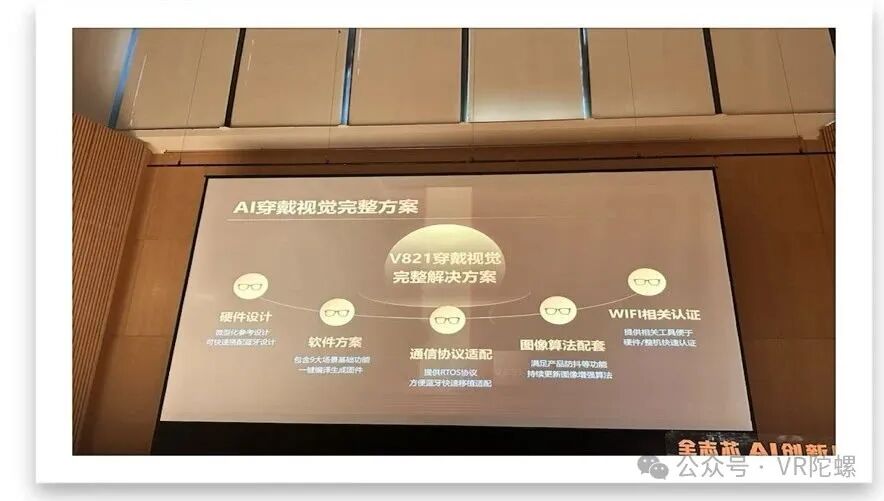
In terms of shooting specifications, the V821 can connect to image sensors ranging from 5 million to 8 million pixels under 64MB of memory, supporting video recording at resolutions from 1080P to 2K. Notably, at the typical video shooting parameter of 1080P@30fps, the chip’s power consumption is as low as 283-295mW. Additionally, it is said that the V821 has been deeply optimized through a professional-grade ISP for the small image sensors and small apertures used in AI glasses, ensuring stable imaging quality.

Image: VR Tuoluo
The V821 leverages the mature industrial chain advantages of Bluetooth chips, allowing it to flexibly adapt to various Bluetooth headset solutions and provide diverse Bluetooth configuration options. It can also seamlessly expand display functions based on Bluetooth wearable chips. Its high-speed bus can directly connect to smartphones to send files when transmitting HD images/videos via built-in Wi-Fi, improving transmission efficiency while further saving power to extend battery life. The chip includes low-power memory, supporting more cost-effective storage solutions like SD NAND in addition to traditional options, effectively reducing overall costs. Based on these parameters, the typical core board solution for AI glasses based on the Allwinner V821 chip measures only 10*50mm, meeting the demands for low power consumption and miniaturization in AI glasses design.
Allwinner V821 L2-WXX Chip Parameters:
- RISC-V CPU 1.2GHz + MCU 600MHz
- 4M30 H.264 encoding
- Supports 5M to 8M photography
- Supports dual cameras with 2*MIPI CSI
- WiFi4, supports low power consumption
- Fastboot/AOV
- SIP 64MB DDR2
- QFN88 (9mm*9mm)
On-site ODM/OEM company Qingcheng Future Technology showcased a prototype V03-T5 based on the V821 solution, which resembles Ray-Ban Meta but is slightly larger in frame size, weighing under 50g, equipped with a 5-megapixel camera and flash, and supports dual microphones for noise reduction, with 32GB of built-in storage.
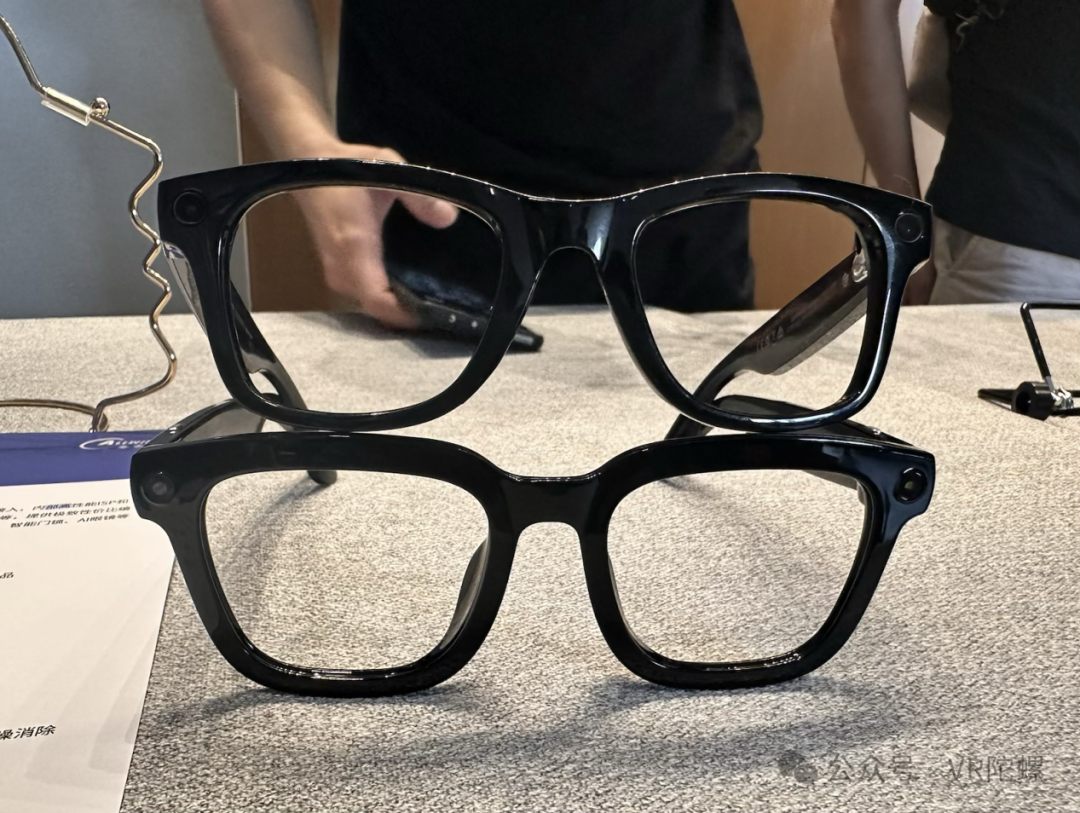
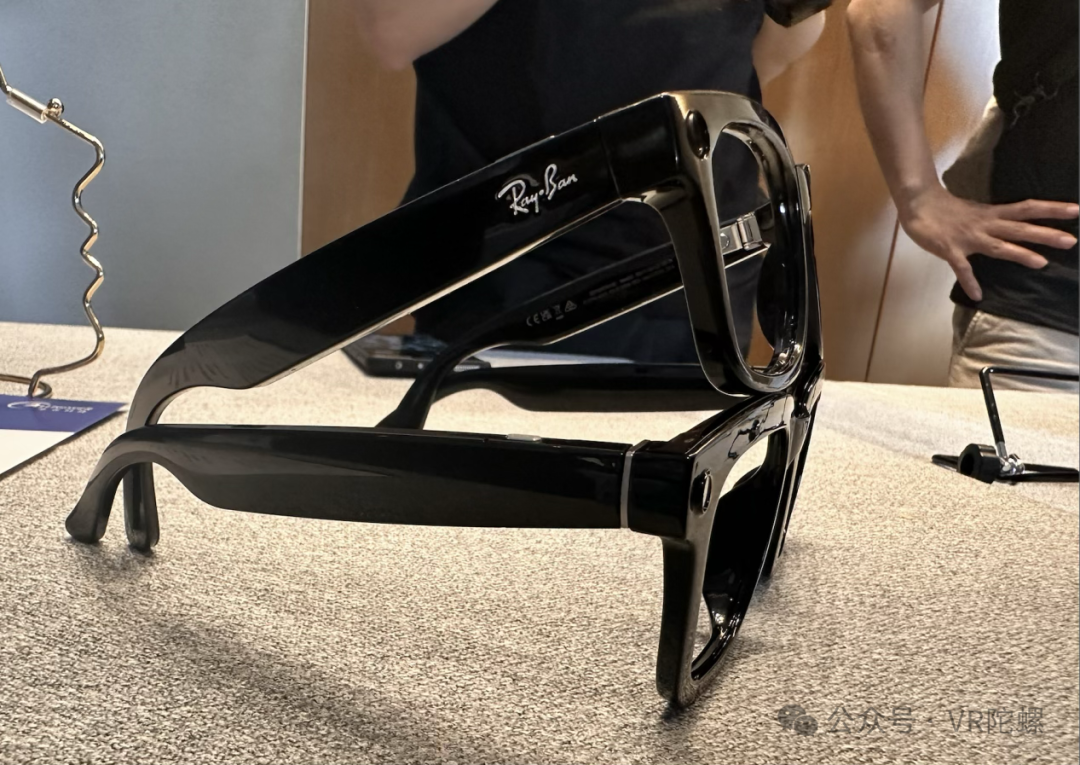
Above: Ray-Ban Meta Below: Qingcheng V821 Prototype Image Source: VR Tuoluo
The button layout is basically consistent with Ray-Ban Meta, allowing for photo and video capture, and can be awakened with “Hello, Xiao Cheng”. However, due to network issues on-site, the AI function had a high latency. Although the overall experience, such as photo and video capture effects, AI latency, and photo capture delay, has some gaps compared to Ray-Ban Meta, it still offers good cost performance at the price point of 200 RMB for AI glasses.
It is reported that AI glasses equipped with the V821 have already begun mass production. In addition, Allwinner has also released another chip, the V881, which is planned to be launched in mid-2026. It is said that this chip was planned at the end of last year, and although some modules are reused from other chips, the chip shape has been optimized into a long strip shape based on the AI glasses’ temples, with the same process as the V821.
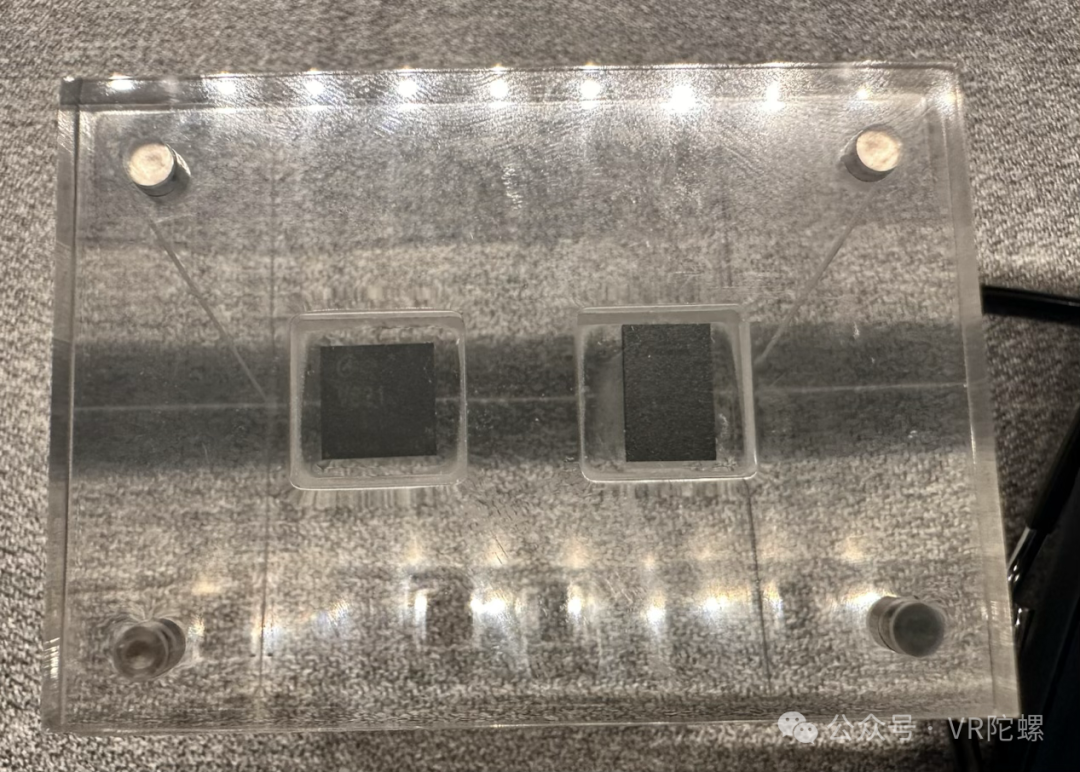
Left: Allwinner V821, Right: Allwinner V881 Image Source: VR Tuoluo
In comparison, the V881 not only supports 12 million to 20 million pixel photography but also supports 1T NPU edge-side neural network processing, enabling gesture, face, and QR code recognition.
12 Million Pixel Real Shot:
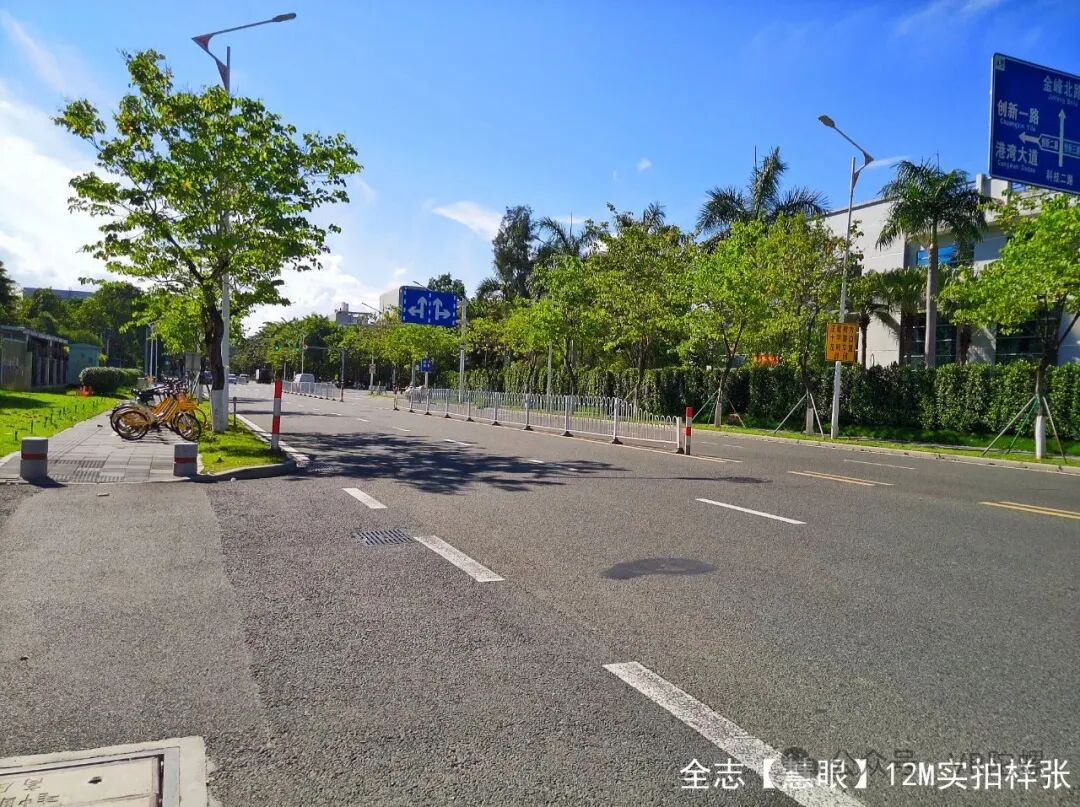
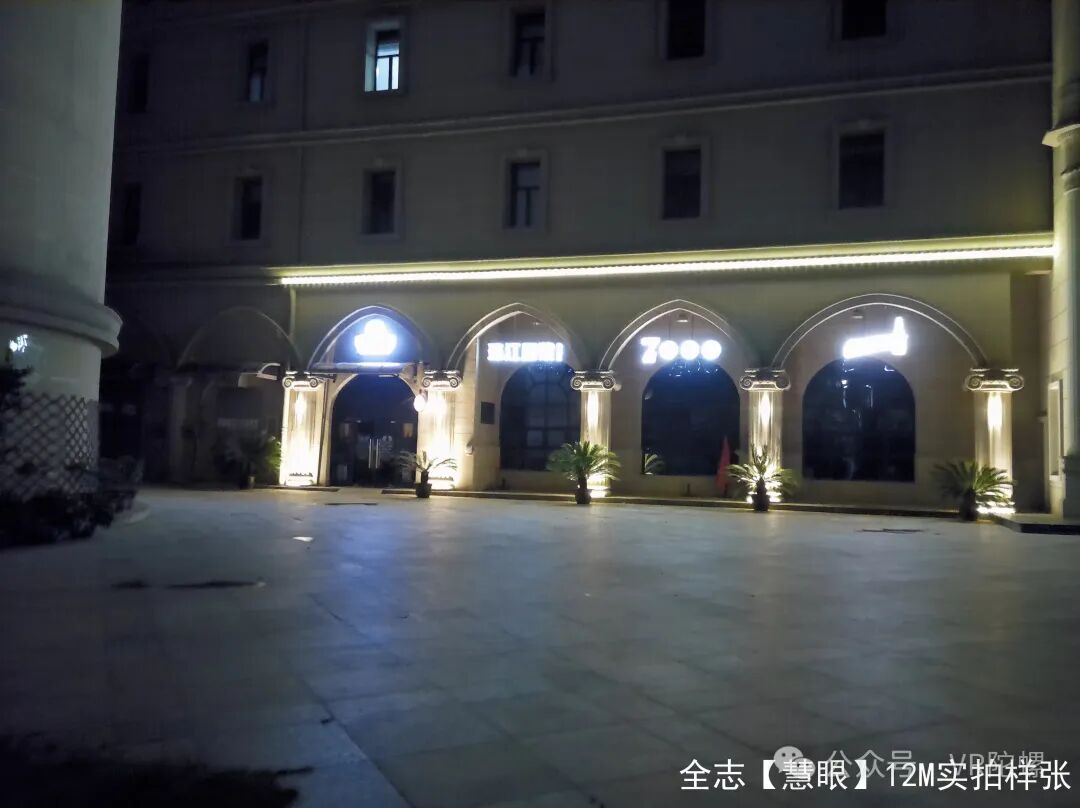

Allwinner V881 Chip Parameters:
- 2*RISC-V CPU + V MCU
- 4K30 H.265/H.264 encoding
- Supports 12M to 20M photography, supports distortion correction/wide dynamic range
- 1T NPU, supports gesture/face/QR code recognition
- 4lane MIPI CSI support
- WiFi 6
- Fastboot/AOV
- SIP 128MB DDR3
- BGA (6.x mm*11.x mm)
Seizing Different Ecological Positions, The Frenzy Under the “First Mover” Advantage
Allwinner, as one of the representative companies of domestic chips, has its chip products spread across various electronic categories in China. For instance, the R series chips are mainly used for smart voice, AIoT, such as smart speakers, voice assistants, and smart home control; the H series chips are used for multimedia processing, suitable for TV boxes, smart projectors, advertising machines, and mid-to-high-end tablets; the T series is used for automotive and industrial control, applicable in smart cockpit systems, industrial control, and medical devices; the chips used for AI glasses belong to the V series, integrating ISP and video encoding, used in dash cameras, ADAS assisted driving, and in-vehicle entertainment systems, with some models like V851S also used in IoT devices like smart locks. Additionally, there are XR and MR series chips for smart home and robotics, education fields. Their chip partners include Tmall Genie, Xiaomi, Baidu, iFlytek, Zuoyebang, Gree, Midea, Haier, FAW, SAIC, etc.
According to data, Allwinner’s chip market share in the smart speaker market exceeds 50%; in the white-label tablet and some smart home hardware segments, its share can reach over 30%. In 2024, Allwinner’s total revenue is expected to reach 2.288 billion RMB, with revenue from smart terminal application processor chips accounting for 85.79%. Behind Allwinner is a vast consumer electronics ecosystem that covers almost all areas of daily-use consumer electronics products.
Guo Qi predicts that the AI glasses niche market will become a hot spot, and companies in smart wearables will enter more efficiently. At the exhibition area of the launch event, many ecosystem companies showed strong interest in AI glasses, including Allwinner’s partners Qingcheng Future and Moli Bao, who have already planned their product lines in advance, fully preparing for the upcoming “Battle of the Hundreds of Glasses”.
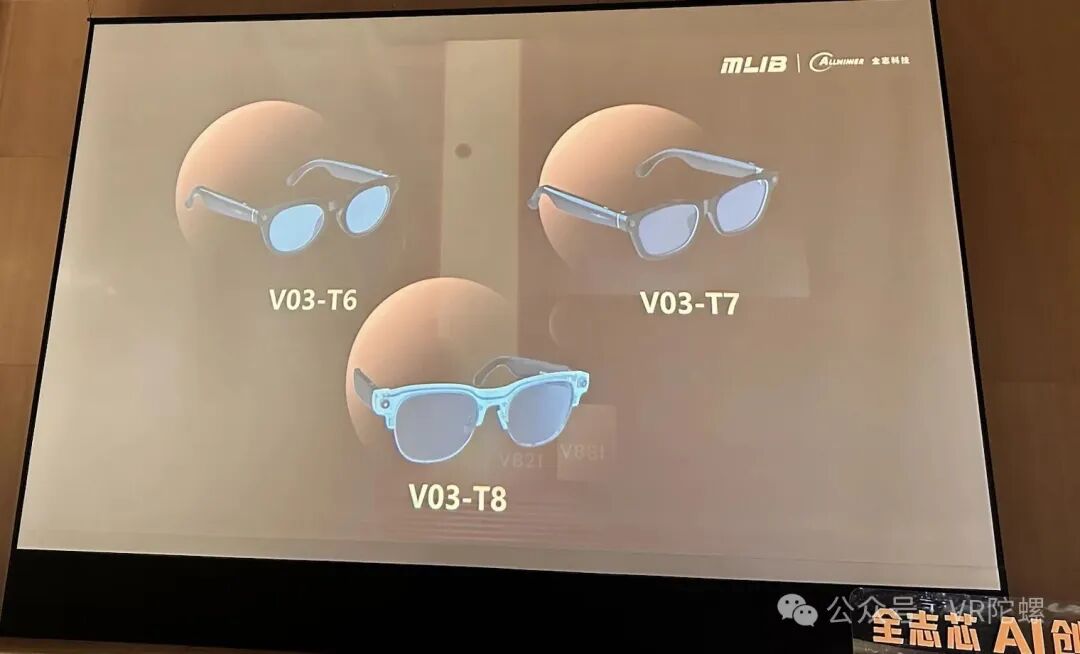
Moli Bao’s three AI glasses solutions, Image Source: VR Tuoluo
Although in the future, companies like Xiaomi, Alibaba, Baidu, ByteDance, and overseas tech giants will enter the AI glasses market, Guo Qi believes that Allwinner is not worried about the competition brought by the battle of hundreds of glasses, as its products have a very clear ecological position, focusing on low price and high cost performance. In fact, if large manufacturers enter the market, it will quickly raise user awareness of this category, and low-priced versions will more easily leverage this momentum to open up the market.
With chips priced at $3-5, the total BOM cost for a pair of glasses does not exceed 200 RMB, it is foreseeable that a large number of low-priced AI glasses will soon appear on the market, which may become the first products to benefit from the AI glasses boom.
 Stay Updated on XR News Follow VR Tuoluo’s official website (vrtuoluo.cn)Contact Information for VR Tuoluo:Business Cooperation | Contributions:Liuliu (WeChat ID 13138755620)Seeking Free Exposure:Liuliu (WeChat ID 13138755620)Submission Email: [email protected]
Stay Updated on XR News Follow VR Tuoluo’s official website (vrtuoluo.cn)Contact Information for VR Tuoluo:Business Cooperation | Contributions:Liuliu (WeChat ID 13138755620)Seeking Free Exposure:Liuliu (WeChat ID 13138755620)Submission Email: [email protected]
Recommended Reading


